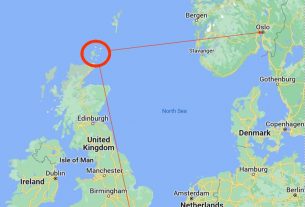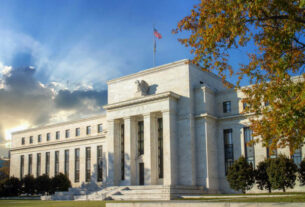London has lost its crown as the home of Europe’s largest stock market to Paris for the first time since records began in 2003.
Stock values in Paris have wiped out a $1.4 trillion gap to London share values in the six years since the Brexit vote, according to Bloomberg.
Shares traded in the French capital have seen their values boosted by currency movements and increasing demand for French luxury products, especially from China. Their combined value is now around $2.823 trillion compared to shares on the London exchange which are worth around $2.821 trillion.
In the UK, the value of medium sized companies has been particularly hit by the cost of living crisis affecting confidence and demand, reflected in the FTSE 250 share index which is down almost 17% in 12 months.
London stock market usurped by Paris
The plummeting value of the pound – down more than 13% in 2022 against the dollar – has affected all UK markets.
Sterling’s decline has impacted imports and prices for raw materials and fuel. Simultaneously, rising interest rates have increased borrowing costs for businesses and mortgage holders.
News that London has been usurped by Paris as home of Europe’s most valued stock market comes just days after the Office for National Statistics (ONS) reported that UK GDP contracted by 0.2% between July and September. On the same day (November 11) the OECD confirmed reported that the UK is the only G7 economy to still be below pre-pandemic levels. Business investment is 8.4% lower than before Covid.
The BoE is forecasting a two-year recession set to be the longest since records began in the 1920s. Unemployment will double, the Bank believes.
Brexit has permanently damaged UK economy
Brexit has “permanently damaged” the UK economy, reducing its “potential output significantly and eroding business investment, a former Bank of England policy maker has said.
“If we hadn’t had Brexit, we probably wouldn’t be talking about an austerity budget this week,” Michael Saunders, – a former member of the BoE’s Monetary Policy Committee (which sets interest rates) – told Bloomberg TV.
“The need for tax rises [and] spending cuts wouldn’t be there, if Brexit hadn’t reduced the economy’s potential output so much,” said Saunders.
His advice for chancellor Jeremy Hunt is to improve trade with the EU, invest in education and training and tackle the rise in long-term sickness that has impacted the labour force.
Saunders said economic damage is the legacy of the UK’s “chaotic period” since the EU referendum marked by five prime ministers and seven chancellors overseeing political uncertainty, Brexit negotiations, the pandemic, war in Ukraine and inflation.
UK’s replacement of EU’s ‘CE’ mark postponed…again
The government has delayed for a third time the introduction of its “UKCA” product safety mark which aims to rival the EU’s “CE” quality mark.
UKCA was meant to have been introduced in January 2022 but business has “repeatedly rejected” it as “burdensome, expensive and impractical”, the Financial Times reports.
It states the government has “bowed to renewed pressure from industry” to postpone introducing the UKCA mark. It will now not come into force until 2025.




